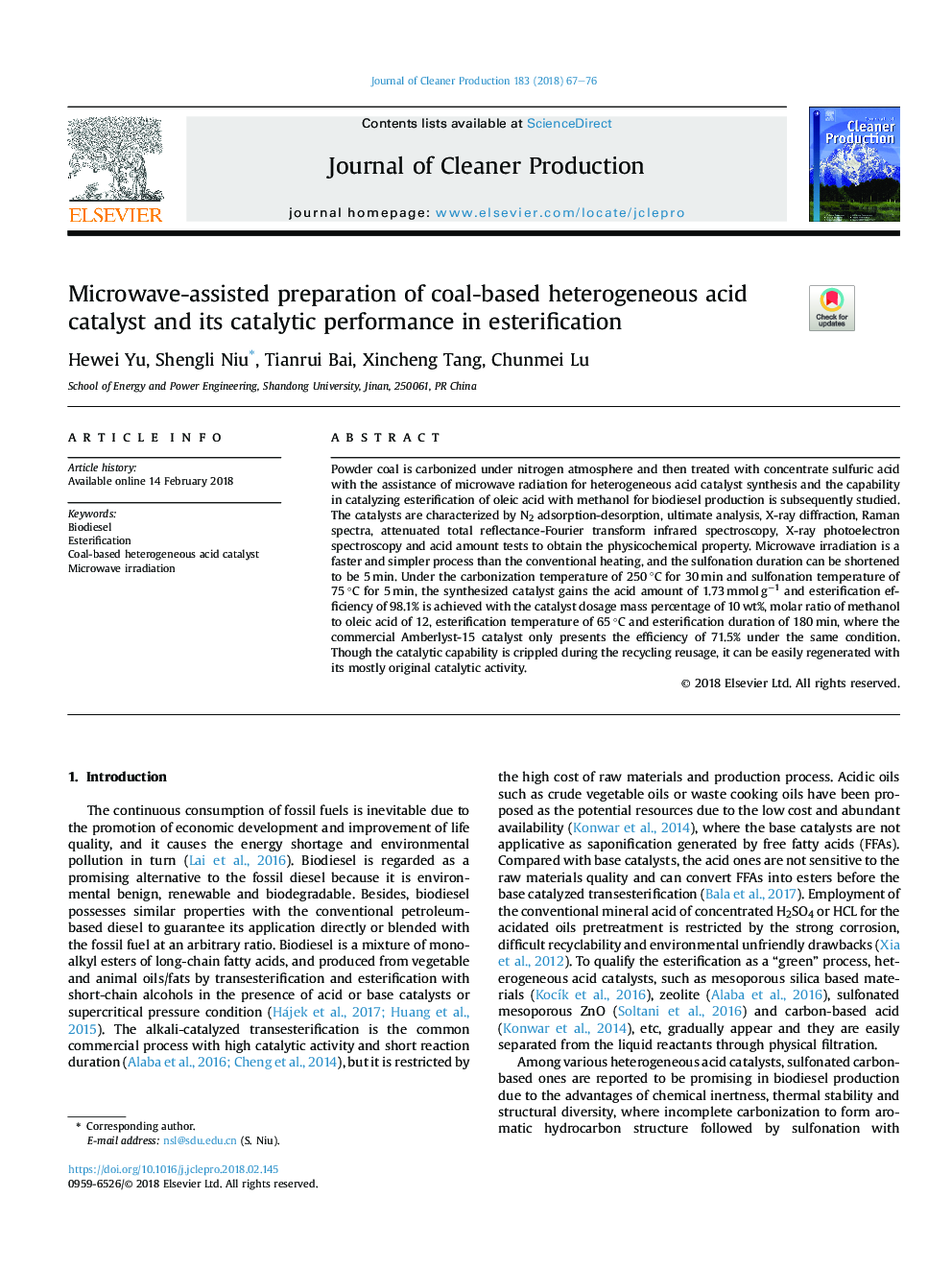| Article ID | Journal | Published Year | Pages | File Type |
|---|---|---|---|---|
| 8096938 | Journal of Cleaner Production | 2018 | 10 Pages |
Abstract
Powder coal is carbonized under nitrogen atmosphere and then treated with concentrate sulfuric acid with the assistance of microwave radiation for heterogeneous acid catalyst synthesis and the capability in catalyzing esterification of oleic acid with methanol for biodiesel production is subsequently studied. The catalysts are characterized by N2 adsorption-desorption, ultimate analysis, X-ray diffraction, Raman spectra, attenuated total reflectance-Fourier transform infrared spectroscopy, X-ray photoelectron spectroscopy and acid amount tests to obtain the physicochemical property. Microwave irradiation is a faster and simpler process than the conventional heating, and the sulfonation duration can be shortened to be 5â¯min. Under the carbonization temperature of 250â¯Â°C for 30â¯min and sulfonation temperature of 75â¯Â°C for 5â¯min, the synthesized catalyst gains the acid amount of 1.73â¯mmolâ¯gâ1 and esterification efficiency of 98.1% is achieved with the catalyst dosage mass percentage of 10â¯wt%, molar ratio of methanol to oleic acid of 12, esterification temperature of 65â¯Â°C and esterification duration of 180â¯min, where the commercial Amberlyst-15 catalyst only presents the efficiency of 71.5% under the same condition. Though the catalytic capability is crippled during the recycling reusage, it can be easily regenerated with its mostly original catalytic activity.
Related Topics
Physical Sciences and Engineering
Energy
Renewable Energy, Sustainability and the Environment
Authors
Hewei Yu, Shengli Niu, Tianrui Bai, Xincheng Tang, Chunmei Lu,
